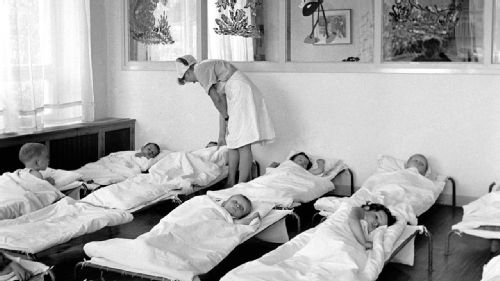Calendar
seminar: Dr Sarah Marks (Birkbeck): Bowlbyism Behind the Iron Curtain: Psychiatry and Childcare Reform in Communist Czechoslovakia
In 1963 a documentary film, Children Without Love [Dětí bez lásky], was smuggled out of Communist Czechoslovakia to the Venice Biennale film festival – and was screened in cinemas at home, surreptitiously tagged onto the end of a Miloš Forman film. It showed emotionally distressed young children looked after for long hours in state crèches, many from the first weeks of infancy. A collaboration between filmmaker Kurt Goldberger, child psychiatrists, a crèche headmistress and a reformist journalist, the film eventually led to a change in the law, with the Communist Party committing to extend paid maternity leave for women, reversing the state’s ideological prioritising of collective child-rearing and full female employment. Scholars such as Kateřina Lišková, and Otto and Lynne Koester, have explored this story from the perspective of gender-relations and paediatrics respectively. In this paper I will draw from primary sources and oral history interviews to show how this communist debate was situated within wider, international discussions about the shaping of the child’s mind and the politics of citizens’ mental health. Czechoslovak campaigners engaged with a wide range of research, from British psychoanalysts such as John Bowlby, American theories of ‘hospitalism’ and institutional neurosis, to Scandinavian work on crèche design. I argue that these developments in Eastern Europe should be written into the international history of post-war mental health, and also offer us a prism through which to consider changing ideas about the nature of the mind under socialism.

